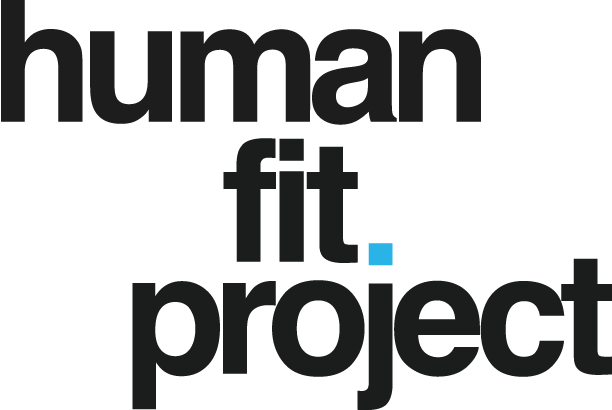Running is one of the most primal ways to get in shape, stay in shape, and relieve stress. However, without a solid running nutrition plan, your progress may be hindered, and you might not be reaching your full potential. And, there’s a difference between eating for muscle and eating for endurance.
This guide will provide you with a comprehensive overview of running nutrition, including the essential macronutrients, pre-run, mid-run, and post-run fueling, hydration, supplements, and tips for creating a balanced nutrition plan.
Related: How to start running for the first time
Related: The marathon “pre-training” plan
Macronutrients for Runners
1. Carbohydrates
Carbohydrates are the primary source of energy for runners. They are stored as glycogen in the muscles and liver and are converted into glucose when needed for energy. There are two types of carbohydrates: simple and complex. Simple carbs, like fruits and sugars, provide quick energy, while complex carbs, like whole grains and starchy vegetables, offer sustained energy.
Recommended carbohydrate intake for runners depends on the intensity and duration of your runs. Aim for 5-7 grams of carbs per kilogram of body weight for moderate exercise and 7-10 grams per kilogram for high-intensity training.
2. Proteins
Protein is essential for muscle repair and recovery. Runners should consume lean protein sources like chicken, turkey, fish, tofu, and legumes. A general guideline for protein intake is 1.2-1.7 grams per kilogram of body weight, depending on your activity level and training goals.
3. Fats
Fats play a vital role in energy storage and nutrient absorption. They also help maintain healthy skin, hair, and joints. Runners should consume a mix of saturated, unsaturated, and omega-3 fatty acids from sources like nuts, seeds, avocados, and oily fish. Aim for 20-35% of your daily caloric intake to come from fats, with a focus on healthy fats.
Related: Eating for muscle vs. eating for endurance
How to Eat Before a Run: Your Pre-Run Nutrition
Proper pre-run fueling ensures you have the energy to perform at your best. Aim to eat a meal 2-4 hours before your run, consisting of complex carbs, lean protein, and healthy fats. Some good options include oatmeal with fruit and nuts, a turkey and avocado sandwich on whole-grain bread, or a quinoa and vegetable stir-fry.
How to Eat During a Run: Your Mid-Run Nutrition
During longer runs (over 60-90 minutes), it’s essential to replenish your energy with easily digestible carbs. Energy gels, chews, and sports drinks can provide quick energy and electrolytes. Aim for 30-60 grams of carbs per hour during extended runs. For example, if we’re running 10 – 12 miles, we’ll have an energy gel (we like GU) around 5 or 6 miles in.
How to Eat After a Run: Your Post-Run Nutrition
After a run, your body needs nutrients to repair and recover. Consume a meal or snack containing carbs and protein within 30-60 minutes of finishing your run. Examples include a protein shake along with some fruit, a rice bowl with veggies and grilled chicken, or a whole-grain wrap with turkey and hummus.
How to Stay Hydrated During Runs
Staying properly hydrated is crucial for optimal performance and preventing dehydration-related issues. Drink water consistently throughout the day and adjust your fluid intake based on your activity level and sweat rate. For runs under an hour, water is sufficient. For longer runs, consider a sports drink with electrolytes to replenish sodium, potassium, and magnesium.
The Nutritional Needs for Different Types of Runners
1. Beginner runners
Focus on establishing a well-balanced diet, paying close attention to their carbohydrate, protein, and fat intake. As beginners, it’s essential to fuel and recover adequately to support the increased physical activity and avoid burnout or injury.
2. Intermediate runners
Optimize their nutrition to support increased training volume and intensity. This includes fine-tuning macronutrient ratios, staying well-hydrated, and considering mid-run fueling for longer workouts. The focus should be on maintaining energy levels and supporting recovery.
3. Advanced and competitive runners
Must pay close attention to their nutrition to support peak performance. This includes precise macronutrient timing, optimizing pre- and post-run fueling, and using supplements when necessary. Nutrition strategies should be individualized and tailored to each runner’s specific needs and goals.
Common Nutritional Challenges for Runners
1. GI Issues
Some runners experience gastrointestinal (GI) issues during or after running. Experiment with different pre-run meals, mid-run fuel, and hydration strategies to determine what works best for your body. Avoid high-fiber, spicy, or greasy foods before running.
2. Over- or Under-Fueling
Finding the right balance of fuel can be challenging for some runners. Work with a registered dietitian or sports nutritionist to develop a personalized nutrition plan that takes into account your specific needs, training goals, and lifestyle.
How to Create a Balanced Nutrition Plan
- Plan your meals and snacks around your training schedule to optimize fueling and recovery.
- Include a variety of nutrient-dense foods from all food groups to ensure you’re getting the essential nutrients your body needs.
- Listen to your body and adjust your nutrition plan as needed, based on your hunger, energy levels, and performance.
- Work with a registered dietitian or sports nutritionist to develop a personalized nutrition plan tailored to your specific needs and goals.
Proper nutrition is crucial for maximizing your running performance and maintaining overall health. By understanding the importance of macronutrients, pre-run, mid-run, and post-run fueling, hydration, and supplements, you can create a balanced nutrition plan that supports your training and helps you achieve your running goals. Remember, every runner is different, so experiment and find the strategies that work best for you.
Don’t forget to follow us on social media: Instagram, Facebook, and Twitter.
Got a question or feedback? Hit up Mike on Instagram, Facebook, and Twitter.
Be first to know about our latest content drops! Sign up for our monthly newsletter.

